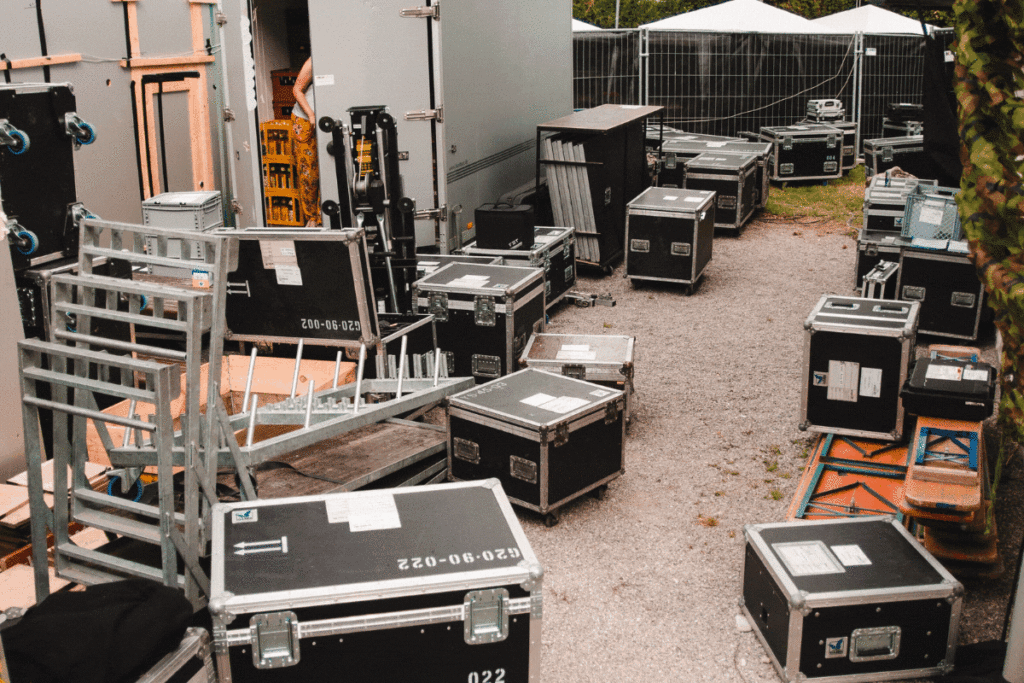Planning and organizing a tour can be an exciting yet challenging endeavor. Whether you are a musician, a band manager, a tour manager, or an event organizer, understanding the intricacies of tour logistics and organization is crucial for a successful and smooth-running tour. In this comprehensive guide, we will delve into the key aspects of tour logistics and organization, from pre-tour planning to on-the-road management, ensuring that you have all the necessary knowledge and tools to execute a memorable and profitable tour.
1. Pre-Tour Planning
Before embarking on a tour, meticulous planning is essential. Start by establishing clear goals and objectives for the tour. Determine the tour duration, the number of shows or events, and the target audience. It’s also important to consider the budget, as it will influence various aspects of the tour logistics. Create a detailed tour itinerary, including dates, venues, and travel routes. Collaborate with booking agents, promoters, and venue managers to secure the necessary arrangements.
2. Transportation and Accommodation
One of the key elements of tour logistics is arranging transportation and accommodation. Depending on the size of the tour and the distance between venues, you may need to consider options such as tour buses, vans, or flights. Research and negotiate the best deals for transportation, making sure to consider factors like comfort, reliability, and cost-effectiveness. Similarly, secure suitable accommodation for the duration of the tour, taking into account the number of people and their specific requirements.
3. Equipment and Gear
For musicians and bands, having the right equipment and gear is crucial for delivering outstanding performances. Ensure that all instruments, sound systems, lighting equipment, and other necessary gear are in top condition and properly maintained. Create a checklist to keep track of all the equipment and ensure it is properly packed and accounted for during transit. Consider backup plans in case of equipment failure or unforeseen circumstances.
4. Personnel and Staffing
Tour logistics also involve managing the personnel and staffing requirements of the tour. Depending on the scale of the tour, you may need to hire roadies, sound engineers, lighting technicians, stage managers, and other support staff. Ensure that everyone is adequately trained and familiar with their roles and responsibilities. Effective communication and coordination among the team members are essential for a seamless tour experience.
5. Financial Management
Proper financial management is crucial for the success of any tour. Create a detailed budget that includes all expenses, such as transportation, accommodation, equipment rentals, personnel salaries, marketing, and promotion. Keep track of all expenses and revenue throughout the tour, making adjustments as needed. Consider working with a financial advisor or accountant to ensure accurate record-keeping and to maximize profitability.
6. Marketing and Promotion
Effective marketing and promotion are vital for attracting audiences to your tour. Utilize various marketing channels, such as social media, email newsletters, press releases, and partnerships with local influencers or media outlets. Leverage the power of digital marketing to reach a wider audience and generate buzz around your tour. Collaborate with a marketing team or agency to develop a comprehensive marketing strategy tailored to your target audience and tour objectives.
7. On-The-Road Management
Once the tour is underway, efficient on-the-road management is essential for maintaining a smooth operation. Assign specific roles and responsibilities to team members, ensuring clear communication and coordination. Monitor the progress of the tour, addressing any logistical or operational challenges promptly. Stay in touch with venue managers, promoters, and other stakeholders to ensure everything runs according to plan. Prioritize the well-being and safety of everyone involved in the tour.
Conclusion
Tour logistics and organization require careful planning, attention to detail, and effective management. By considering all the key aspects discussed in this guide, you will be well-equipped to tackle the challenges that come with organizing a successful tour. Remember, each tour is unique, so adapt these guidelines to suit your specific needs and circumstances. With the right preparation and execution, you can create memorable experiences for your audience while achieving your tour goals.
Key Takeaways:
- Meticulous pre-tour planning is crucial for a successful tour, including setting clear goals, establishing a budget, and creating a detailed itinerary.
- Transportation and accommodation arrangements should be carefully considered, ensuring comfort, reliability, and cost-effectiveness.
- Proper management of equipment and gear, as well as personnel and staffing, is essential for delivering outstanding performances.
- Effective financial management, marketing, and promotion strategies are vital for attracting audiences and maximizing profitability.
- Efficient on-the-road management, including clear communication and coordination, ensures a smooth operation throughout the tour.
To further enhance your knowledge and skills in tour logistics and organization, consider taking the NYU Business of Entertainment online course and certificate program offered by Yellowbrick. This comprehensive program will provide you with valuable insights and practical strategies from industry experts, helping you excel in the business side of the entertainment industry. By investing in your education and professional development, you can further elevate your career in the tour logistics and organization field.








